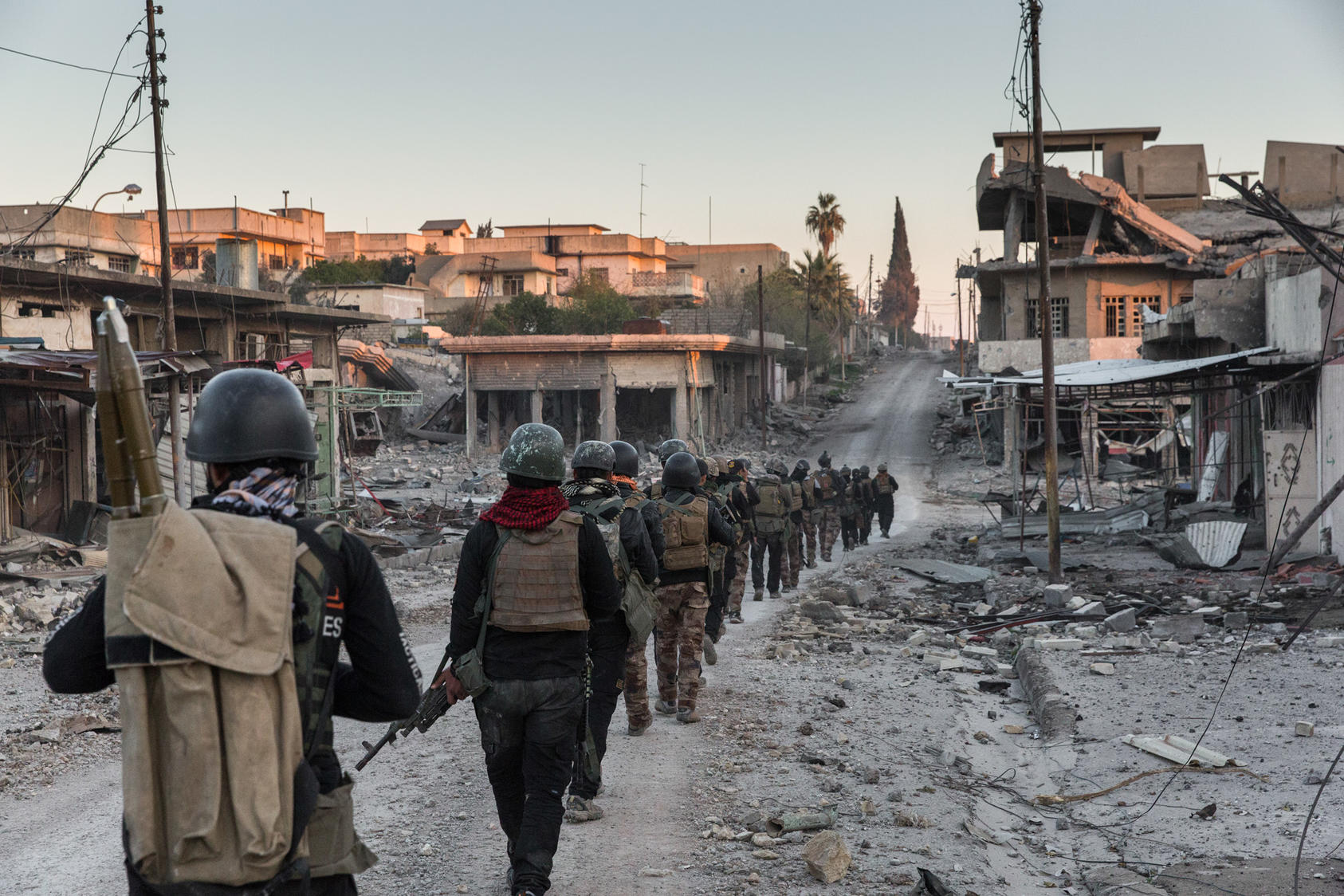How to Stabilize Iraq After ISIS—and Why it Matters
Senior U.S. and Global Coalition Diplomats on Ways to Secure Peace
As military campaigns in Iraq and Syria recover territories from the rule of the Islamic State extremist group, the 67-nation Global Coalition will meet in Washington on July 11-13. Vital questions for the coalition include the strategy to build long-term security and stability in the region. Following the coalition’s meetings, USIP held a conversation with Ambassador Ekkehard Brose, who co-chairs the coalition’s “Stabilization Working Group”, and Joseph Pennington, deputy assistant secretary of state for Iraq.
Ambassador Brose and Mr. Pennington discussed the U.S. and Global Coalition’s strategy in Iraq, including the issues on which the international community should focus to advance a sustainable peace in the region. Ambassador Brose until last year headed the German embassy in Iraq, and now serves as his government’s special envoy for crisis prevention and stabilization. He also is an adviser to the Iraqi government on economic, budget and reform issues. Mr. Pennington has served as deputy assistant secretary for Iraq since December 2015. He also served as the United States’ consul general in Erbil, in the Iraqi region of Kurdistan.
A recording of the event can be found on this event page.
Speakers
Nancy Lindborg, Opening Remarks
President, U.S. Institute of Peace
Ambassador Ekkehard Brose
German Foreign Office Special Envoy for Crisis Prevention and Stabilization; Co-Chair of the Stabilization Working Group of the Global Coalition
Joseph Pennington
Deputy Assistant Secretary of State for Iraq, U.S. Department of State
Sarhang Hamasaeed, Moderator
Director, Middle East Programs, U.S. Institute of Peace




